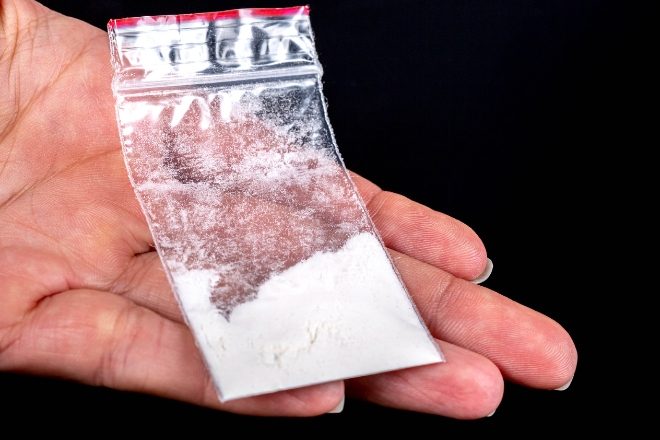British Columbia to decriminalise possession of cocaine and MDMA
Possession of small amounts of the drugs will be decriminalised in a new pilot scheme

The government of British Columbia (BC) has announced that small amounts of illegal substances for personal use would be decriminalised, in a first-of-its-kind policy in Canada aimed at combating the opioid crisis.
Canadians aged 18 and above will be permitted to possess up to 2.5 grammes of opioids, cocaine, methamphetamine, and MDMA in British Columbia, according to the federal government.
The BC government announced on Tuesday in a statement that it has been given a three-year exemption from Canada's federal drug control law, the Controlled Drugs and Substances Act.
Read this next: How drugs won the war on drugs
This move is not a wide-scale policy change but is rather a pilot scheme to gather evidence around small scale decriminalisation in tackling problematic drug use.
The experimental exemption means that no arrests, prosecutions, or seizures will be made for personal possession of fewer than 2.5 grammes. It will come into effect on January 31, 2023 and last until January 31, 2026.
The announcement comes in response to the province's request for an exception from the drug possession legislation.
Sheila Malcolmson, BC’s minister of mental health and addictions, said during a news conference in Vancouver: "This is a very important day. The federal government’s approval of British Columbia’s request to decriminalise people who use drugs is a major step in changing how we view addiction and drug use in British Columbia.
"It reflects our government’s agreement that substance use is a public health issue, not a criminal one."
Read this next: The UK government's war-on-drugs policy is out of touch and is causing harm
During the COVID-19 pandemic, the city had an increase in drug overdose deaths, which escalated. In 2021, there were 2,224 suspected toxic illicit drug overdose fatalities in British Columbia - and more than 9,400 since 2016.
Between April 2020 and March 2021, there were 7,224 opioid-related fatalities in the country, a 95% increase over the same time the previous year. The majority of the deaths occurred in British Columbia, Alberta, and Ontario.
Nonetheless, the exemption represents a significant policy shift in favour of what decriminalisation supporters describe as a health-oriented approach to addiction rather than a criminal one.
Experts pushed Canada to broaden drug decriminalisation on Tuesday, emphasising that the opioid issue is not limited to British Columbia.
Speaking to Mixmag, Katya Kowalski of UK Drug Policy reformation think tank Volteface said: "Given the record number of overdose deaths in British Columbia, the announcement of an experiment for small scale decriminalisation is an important one in recognising the current issues with drug policy.
"Evidence should be at the heart of any policy and is exactly what has been lacking for drug policy. British Columbia taking this positive step forward is a welcome one. Jurisdictions must start treating drug use as a health issue, rather than a criminal one.
"Criminalising vulnerable populations has not deterred use, or gotten to the root cause of why they are using drugs in the first place. An experiment decriminalising the possession of drugs is an important step forward."
Jamie Livingston, an associate professor of criminology at St Mary’s University in Halifax, wrote on Twitter: “People who use drugs in #NovaScotia and throughout Canada deserve the benefits derived from drug decriminalization.”
Read this next: Do you have to do drugs to enjoy dance music?
People who use drugs in #NovaScotia and throughout Canada deserve the benefits derived from drug decriminalization. The harms of stigma and criminalization don't stop at the BC border. Bill #C216
— Jamie Livingston 🌻 (@dr_jdlivingston) May 31, 2022
However, the new exemption comes with certain drawbacks. It is not applicable at primary or secondary schools, child-care institutions, or airports. It also does not apply to Canadians who are subject to the disciplinary code of the military.
The exemption, according to Health Canada, does not decriminalise actions such as drug trafficking, production, importation, or exportation of illegal substances.
Read this next: The British Medical Journal: "The war on drugs has failed"
[Via:Al Jazeera and CBC]
Aneesa Ahmed is Mixmag's Digital Intern, follow her on Twitter

Mixmag will use the information you provide to send you the Mixmag newsletter using Mailchimp as our marketing platform. You can change your mind at any time by clicking the unsubscribe link in the footer of any email you receive from us. By clicking sign me up you agree that we may process your information in accordance with our privacy policy. Learn more about Mailchimp's privacy practices here.

 Former Tiësto lawyer who illegally hid $28 million in tax argues Dutch DJ should pay it back
Former Tiësto lawyer who illegally hid $28 million in tax argues Dutch DJ should pay it back



